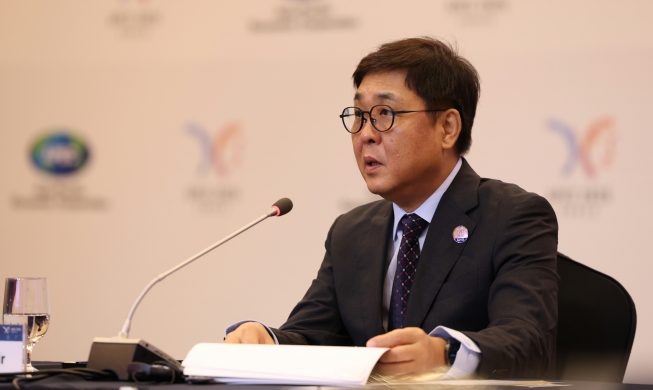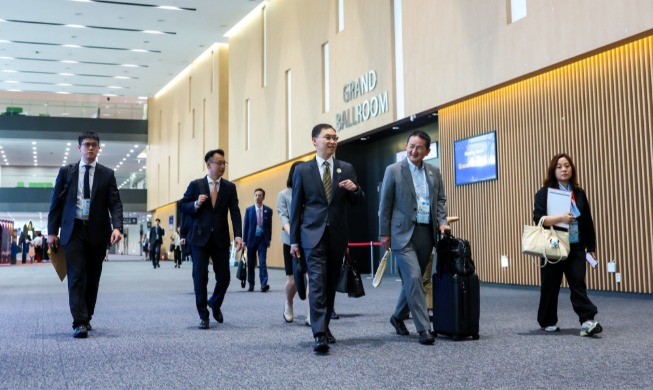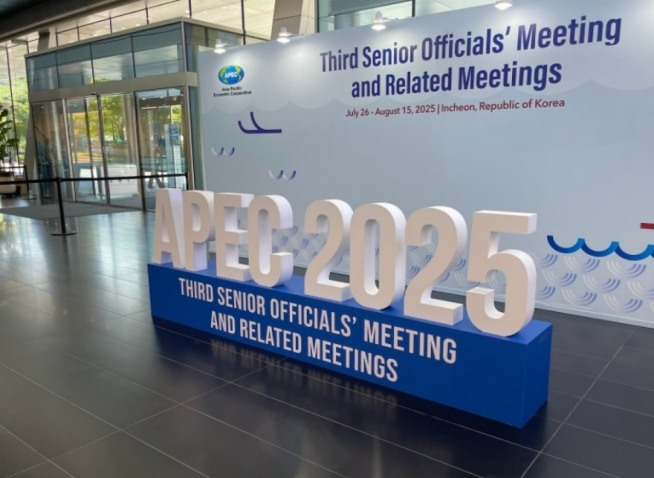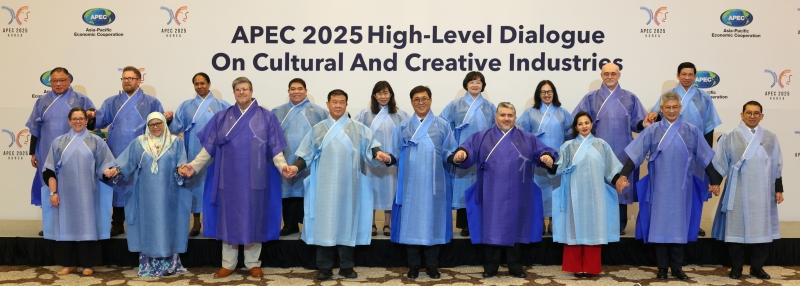
Clad in the traditional jacket durumagi, Minister of Culture, Sports and Tourism Chae Hwi-young (fifth from left in front row) on Aug. 27 poses for photos with attendees of the plenary session of the Asia-Pacific Economic Cooperation High-Level Dialogue on Cultural and Creative Industries at the hotel Hilton Gyeongju in Gyeongju, Gyeongsangbuk-do Province.
By Kim Hyelin
Photos = Ministry of Culture, Sports and Tourism
The Asia-Pacific Economic Cooperation (APEC) High-Level Dialogue on Cultural and Creative Industries (CCI) has adopted a joint statement on the commitment of member economies to continue cooperation in such sectors.
Minister of Culture, Sports and Tourism Chae Hwi-young on Aug. 27 told a news conference at the hotel Hilton Gyeongju in Gyeongju, Gyeongsangbuk-do Province, "Through the adoption of the joint statement, we confirmed the economic influence of culture and the role of CCIs as a catalyst for economic growth within APEC."
The Ministry of Culture, Sports and Tourism in a news release said, "In line with the main theme and the three key priorities of APEC 2025 Korea, 'Building a Sustainable Tomorrow: Connect, Innovate, Prosper,' we discussed three lines of action for cooperation to achieve further economic growth in the region based on the cultural and creative industries."
On the first theme "Connect," the statement said the cultural industry can emerge as a new catalyst for economic cooperation within APEC by promoting tourism and people-to-people exchange.
The second theme "Innovate" stressed the role of artificial intelligence (AI) and digital technology in driving changes in the sector.
The ministry said, "We share the recognition that advances in digital technologies, including AI, are pushing the boundaries of creativity by widening access to cultural expressions for different audiences and enabling innovation across the entire process of creation, production, distribution, and consumption of cultural and creative products in the APEC region."
On the impact of AI on the cultural sector including jobs and the intellectual property rights of creators, it added, "We further recognize the need for collective attention and efforts aimed at ensuring rapid changes, in digital tools and AI, foster economic growth in the region by supporting creators in the cultural sector and bridging digital skills gaps."
For the last theme "Prosper," APEC member economies agreed to continue cultural exchanges and strive to work together within the region.
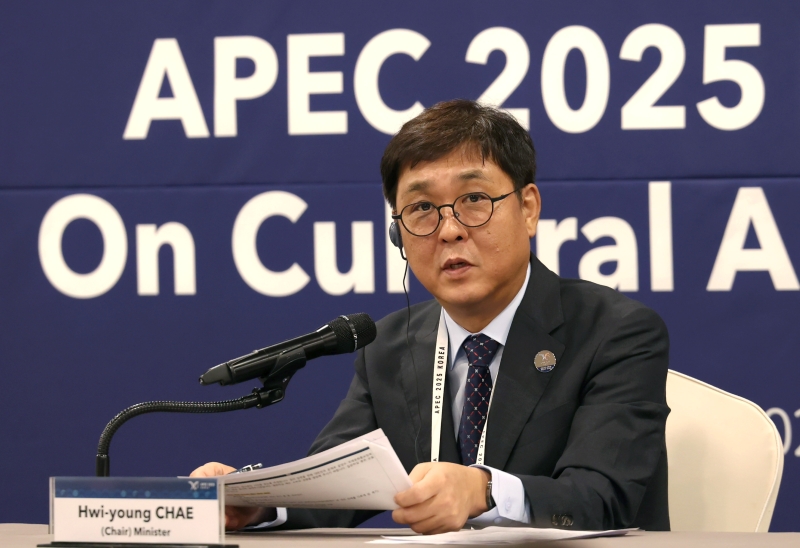
Minister of Culture, Sports and Tourism Chae Hwi-young on Aug. 27 speaks at a news conference after the plenary session of the APEC High-Level Dialogue on CCI.
Chairing the plenary session that day, the minister said, "This is the first time in APEC history for culture to be upgraded to a key agenda of economic cooperation," adding, "The plenary session was a major achievement as it went beyond agenda-specific discussions and vividly showed to APEC member economies the infinite expandability of cultural content and the capabilities of the Korean cultural industry."
"I believe that these discussions will continue at next year's APEC Summit in China," he added. "To this end, we will continue closely communicating with all member economies including China."
On the final day of the dialogue, delegates from each member state visited major tourist attractions in Gyeongju, the host city of this year's APEC Summit, including Bulguksa Temple, Daereungwon Tomb Complex and Gyeongju National Museum.
kimhyelin211@korea.kr
